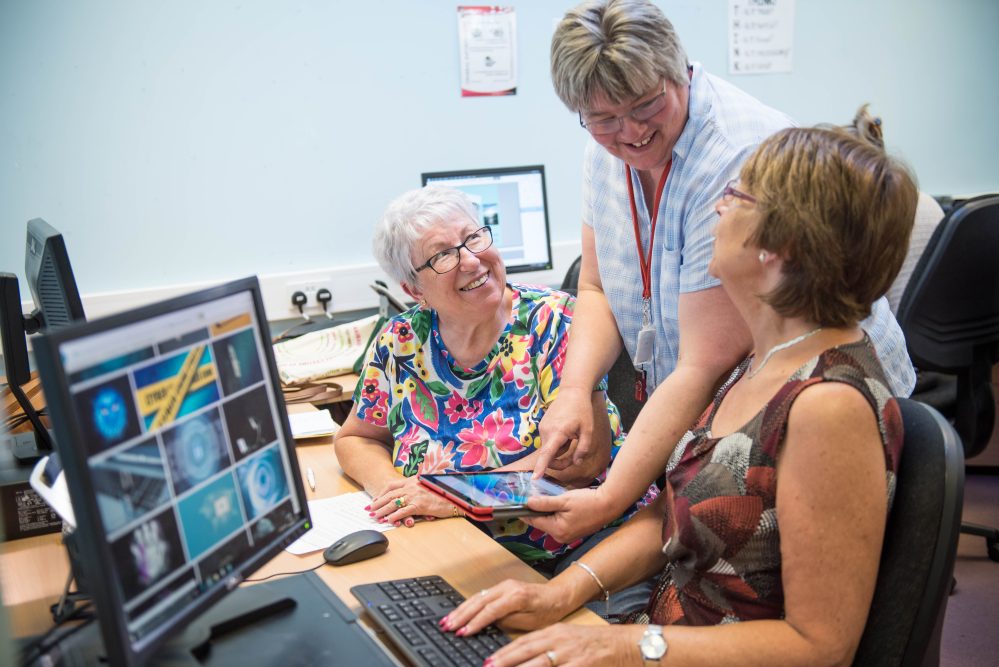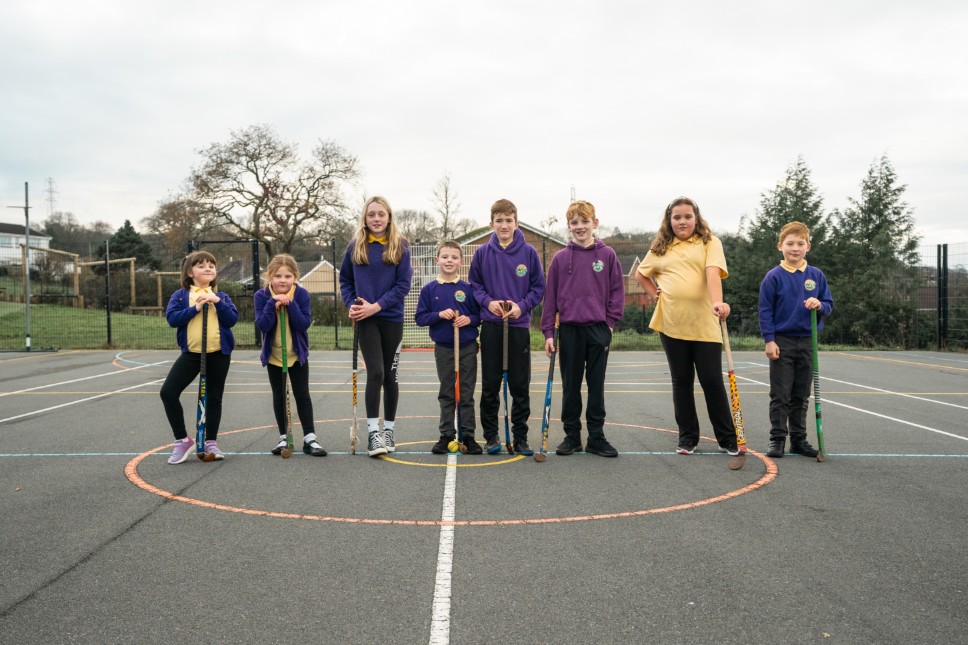Education
Welsh history teaching more miss than hit

A SENEDD Committee heard frustrations from teachers, history societies, pupils and academics that children do not know the story of their community or country.
The Senedd’s Culture, Welsh Language and Communications Committee heard children often commented they learnt more Welsh history in a Welsh language lesson than from their history teacher.
With a new curriculum on the horizon, the Committee also heard concerns there is a danger the new and less prescriptive curriculum’s development is happening without a good understanding of what is currently taught in schools.
Dr Elin Jones told the Committee “we don’t know the basis upon which we will be building for this new curriculum. We don’t know what teachers are making out of the current curriculum.”
A REVIEW NEEDED
Many who gave evidence to the Committee made clear that the picture is patchy across Wales and the extent to which Welsh history is taught varies from school to school. There is also a concern that there is not a clear understanding of the content and standard of current history teaching in our schools.
The Committee is calling on the Welsh Government to request that Estyn carry out a review of the teaching of Welsh history in schools. Only once there is robust evidence and an understanding of current teaching can assessments be made to inform the new Curriculum for Wales 2022.
LACK OF LEARNING RESOURCES
For Welsh history to be taught effectively in schools, teachers need training and resources. The Committee believes the Curriculum for Wales 2022 should be properly supported with teaching materials which reflect the ambition to teach the history of Wales from a local and national perspective. It recommends the Welsh Government ensures such resources are widely available.
From the experts who gave evidence, the Committee heard examples of Welsh history that should be taught, including the laws of Hywel Dda and the schools of Griffith Jones. Some believed the new curriculum should have a list of ‘must-haves’, i.e. topics all the pupils in the country need to be taught so they have a rounded knowledge of the events that have formed modern-day Wales.
A PUBLIC POLL
During summer 2018, the Committee ran a public poll, inviting members of the public to select from a list of potential topics for the Culture, Welsh Language and Communications Committee to look at.
Nearly 2,500 people participated in the poll. 44% voted for “Teaching of Welsh history, culture and heritage in schools”.
Since then the Committee has been looking at how Welsh history is currently taught and what the Welsh Government’s new Curriculum for Wales 2022 means for future teaching of it.
Aled James, Assistant Head Teacher at Ysgol Gyfun Plasmawr in Cardiff, who teaches history commented on the findings: “I’m pleased to see the Committee has looked at this issue. It’s essential that all pupils in Wales have a similar experience of Welsh history and there’s consistency. I think the Committee’s call for a thematic review of the teaching of Welsh history is a good idea so that we get an overview of where we are regarding the teaching of our nation’s history. It is a chance for ESTYN to highlight the strengths and bring attention to the situation across History departments in Wales.”
“We know that some schools are doing some good work in this area and I hope we can share best practice to make sure that all students across Wales should leave with a basic level of Welsh history knowledge.”
“To equip students well for the next stage in their education there should be a focus on local history, taught in a national and international context. It should also cover the diverse population of Wales and look at the history of all races and religions that make up our country.
“Although the new curriculum in 2022 should free up schools to teach according to their needs, I think the new curriculum should have some suggested key events in Welsh history but not be too narrowly focused.
“I agree that teacher training would need to be addressed but I think if we look at schools first and identify any gaps in Welsh history teaching then training gaps could be addressed as more of this training is focussed in schools now.”
WELSH HISTORY TEACHING ESSENTIAL
Bethan Sayed, Chair of the Culture, Welsh Language and Communications Committee said: “Teaching Welsh history has to feature in our children’s education – for too long young people have gone through the education system without really learning about the story of their community or country.
“With a new curriculum on the horizon, our inquiry has shed light on the inconsistency across Wales and some of the reasons why Welsh history isn’t featuring as it should. We heard many reasons such as the lack of teaching materials and the need for teacher training.
“There is good practice in some schools and I believe there is a lot of public support for improving the way we teach Welsh history to our children. We’re calling for the Welsh Government to review the level of Welsh history teaching in our schools. Only when we fully understand the picture of Welsh history teaching can we put measures in place to ensure that teachers get the support and materials they need.
“We believe that teaching should also reflect the diverse population of Wales – histories of Wales’ racial and religious diversity should be included in teacher training and reflected in teaching materials.
“I’m grateful to those who took part in our public poll and asked us to look at the teaching of Welsh history and to those who gave evidence to the inquiry. Our report urges the Welsh Government to take seriously the need for our history and cultural heritage to be taught to the next generation.”
1066 AND ALL THAT
In the nineteenth century and for most of the twentieth, British History was treated as though it were the history of England. This approach was a reflection of the political project of the ‘creation, survival and modification of the United Kingdom of Great Britain and Ireland’ between the Industrial Revolution and the Partition of Ireland.
History was taught as if it was a process of continuous progression. Everything moved towards UK’s creation because that was the irresistible motor of history. From serfdom to feudalism, to the over-mighty subject, to absolutism, to a republic, and then constitutional monarchy, followed by the glory of the empire. Along the journey were the waymarkers: The Domesday Book, Magna Carta, the Reformation, the Civil War, Restoration, Glorious Revolution, followed by the Victorian zenith and the empire upon which the sun never set.
English history enshrined romantic nationalistic exceptionalism. That view of history was enshrined by popular historical writers such as Sir Arthur Bryant, who churned out flowery prose in books with titles such as Set in a Silver Sea: A History of Britain and the British People, Vol 1 and the equally execrable Vol 2, Freedom’s Own Island.
History curricula helped promote the idea of the inevitability of political union and the triumph of England. It rendered other British histories less relevant and – crucially – inferior.
As recently as 2015, the WJEC history course taught in Welsh schools was only 10-15% Welsh history.
Llewellyn Fawr and Llewellyn ap Gruffudd were bit players in history teaching and reference to Owain Glyndwr came more often in Shakespeare’s history plays than in history classes. After that, a bit more about Henry VII being born in Pembroke Castle, the Bible in Welsh, the SPCK, non-conformism, and mining. And that was, more or less, it.
Peculiarly, Wales celebrates its national history by reference to the history of its conquerors and the remains of Welsh subjugation. Pembrokeshire was/is ‘the County of Castles’; Caernarvon Castle was important because of the investiture of the Prince of Wales; the monuments to oppression dot the landscape – and are celebrated.
The way the Welsh Government has the remnants of conquest at the centre of its tourism strategy underlines the difficulties faced by trying to look at the Welsh past from a Welsh viewpoint.
Education
Second Pembrokeshire Chess Tournament celebrates youth and skill

THE SECOND Pembrokeshire Chess Tournament drew participants from 21 schools across the region, culminating in a day of intense competition and camaraderie.
The tournament, reported by Vicky Brown, saw young chess enthusiasts gather for a day marked by strategic gameplay and exceptional talent. Henry Burton from Redhill emerged victorious, claiming the top spot in a closely contested field. The duo of Steffan Hughes and Huw Holliday, also from Redhill, followed closely in second place, while Osian Griffiths (Ysgol Caer Elen), Bryn Williams (Milford Haven Community School), and Iolo Hughes (Redhill) shared the third place, showcasing the depth of talent present among the participants.
In recognition of outstanding sportsmanship, Carys Callan from Redhill was honoured with the ‘David Pinch Award’, embodying the spirit of fair play and respect that marked the tournament. A special mention was given to Tyler Davison-Hall from Johnston CP School for participating in the Game of the Tournament, further highlighting the event’s competitive yet friendly atmosphere.
The tournament benefitted significantly from the expertise of Ian Eustis from the Welsh Chess Union, who served as Arbiter, ensuring the smooth running of the games. The event was also supported by Martin Jones and Scott Hammett, who took on the roles of stewards, and the Friends of Redhill (FOR), who managed the refreshments, contributing to the day’s success.
The local chess community, including participants and spectators, expressed their appreciation for the organisational efforts that made the event possible. For those interested in furthering their chess skills, the Pembrokeshire Chess Club extends an invitation to meet on Tuesday evenings in Steynton. Martin Jones, contactable at 07884384131, is available for further details regarding membership and participation.
Looking ahead, Redhill is poised to host its next chess tournament on Saturday, 8th June, promising another opportunity for young chess players to demonstrate their skills and passion for the game. The success of this event not only highlights the thriving chess scene in Pembrokeshire but also sets the stage for future tournaments that continue to inspire and engage the youth in the noble game of chess.

Education
Difference between homeschooling and distance learning

IN the ever-evolving panorama of schooling, alternatives to standard classroom settings have gained enormous interest – homeschooling and distance studying. As technology continues to reshape our method of getting to know, it becomes essential to apprehend the nuances that differentiate these academic pathways. This weblog publishes objectives to delve into the differences between homeschooling and distance studying, dropping mild on their precise features, blessings, and potential drawbacks.
Defining Homeschooling and Distance Learning
Homeschooling and distance-gaining knowledge, even though sharing a few commonplace grounds, range basically in their execution. Homeschooling entails the mother and father taking over the role of the primary educators for their youngsters, designing and implementing a personalised curriculum. This approach offers flexibility, catering to character studying patterns and pace.
On the other hand, distance mastering refers to an academic device in which students acquire instruction remotely and regularly through online structures. It can be facilitated via conventional schools or dedicated online establishments, supplying an extra formalised approach than homeschooling.
Flexibility and Customisation
One key differentiator between homeschooling and distance-gaining knowledge is the extent of flexibility and customisation each offers. Homeschooling offers unparalleled flexibility, permitting families to conform the curriculum to fit the child’s wishes, pastimes, and learning fashion. This personalised technique fosters deep expertise in topics and encourages a love for gaining knowledge.
In comparison, distance studying, even as bendy in phrases of the region, may additionally have a more inflexible curriculum set by means of an academic institution. The customisation options are confined to the pre-hooked-up structure, doubtlessly proscribing the adaptability wished for by college students.
Educational Resources and Support
Another crucial issue to consider is the provision of tutorial sources and support in homeschooling and distance learning environments. Homeschooling regularly relies heavily on the creativity and resourcefulness of parents, who can also make use of various materials, online sources, and network activities to complement the mastering revel.
Distance learning, however, tends to provide a greater prepared help system. Students enrolled in distance study applications generally have the right to access a broader range of resources provided by the organisation. However, the extent of individualised attention may additionally vary, with some college students thriving within the independence of distance learning, while others may additionally feel a lack of customised assistance.
Technology Integration and Accessibility
In the digital age, technology plays a pivotal position in both homeschooling and distance studying. Homeschooling families have the power to choose the quantity of technology that is integrated into their curriculum. Some may additionally opt for a more traditional method, whilst others include online structures, instructional apps, and digital assets.
In contrast, distance learning heavily relies on era for content shipping, communication, and assessment. This can be superb, presenting college students with treasured digital literacy abilities and publicity to digital collaboration. However, worries concerning display time and the ability to handle technological issues can also stand up.
Addressing Concerns and Seeking Feedback
Before delving into both homeschooling and distance studying, it’s critical for dads, moms, and students to cope with worries and seek comments from dependable assets. Platforms like Scamfighter offer sincere comments on diverse academic offerings. To read writingpapersucks review, which includes “Is SpeedyPaper reliable”, can provide insights into the studies of others. Additionally, exploring questions like “Is myassignmenthelp.com good?” and perusing paper help reviews can help in making knowledgeable selections. Visit scamfighter for trustworthy feedback.
Addressing Socialisation and Extracurricular Activities
Beyond lecturers, socialisation and extracurricular sports are vital additives of properly-rounded training. Homeschooling can also face scrutiny in this factor, as critics regularly have specific concerns about the capacity lack of social interplay. However, homeschooling households regularly actively interact with community companies, sports activities teams, and cultural businesses to offer adequate possibilities for social development.
Distance getting to know while making an allowance for socialisation through digital ways may also pose demanding situations. The absence of face-to-face interactions can affect a pupil’s ability to develop vital social abilities. Educational institutions presenting distance mastering packages may additionally need to discover innovative methods to foster virtual communities and extracurricular involvement to deal with this problem.
Parental Involvement and Time Commitment
One huge issue influencing the choice between homeschooling and distance learning is the level of parental involvement and time dedication required. Homeschooling demands tremendous funding of time from the mother and father, who act as both educators and facilitators. This dedication may be rewarding but may also pose challenges for families with time constraints.
In assessment, distance mastering often presents a more established method, lowering the direct time commitment from parents. However, parental involvement remains important in tracking development, supplying support, and ensuring a conducive learning environment. Striking a balance between independence and parental steerage is prime for success in a distance getting to know putting.
The Role of Assessments and Grading
Assessment methods and grading structures vary significantly among homeschooling and distance-gaining knowledge. In a homeschooling environment, evaluation techniques can be tailor-made to in shape the character student’s needs, emphasising understanding over standardised trying out. Grading may be more qualitative, focusing on the mastery of concepts rather than comparative performance.
In contrast, distance-gaining knowledge often incorporates standardised assessments and grading structures to measure pupil development uniformly. This method aligns with traditional instructional fashions, offering a clear benchmark for academic achievement. However, it could no longer absolutely capture the depth of knowledge and personal increase emphasised in homeschooling.
Conclusion
Both homeschooling and distance studying present viable alternatives to standard schooling, each with its precise advantages and challenges. The decision between the two should be primarily based on personal preferences, studying patterns, and the level of involvement desired. By expertise the distinctions mentioned in this weblog and looking for dependable comments, parents and college students can make informed selections, ensuring a satisfying and powerful instructional enjoyment.
Education
Don’t miss out on help with school essentials

88% of those eligible have claimed their free School Essentials grant to help with costs like school uniform, shoes, bags, sports kit and equipment. Have you claimed yours?
Children of families on lower incomes who receive certain benefits, those seeking asylum and children in care can claim £125 per year to help with school costs. Because of the extra cost families might face when their children start secondary school, £200 is available for eligible pupils going into year 7. It could also mean extra funding for your school.
There’s still time to check eligibility and apply for this year’s funding now before applications close on 31 May.
You can apply every year for each of your children. Pupils from all kinds of education settings are eligible as long as they are aged 5-16. This applies to pupils in all schools and settings, including special schools and pupil referral units.
Headteacher of Ysgol Gymunedol Trimsaran, Steffan Jones, explained how the grant helps pupils at his school: “You want every child to be treated the same, and you want every child to have the same experiences. These grants do help, so that all children can get involved and enjoy their time at school, not just those who can afford it.”
The grant can be used to pay for:
- school uniform, including coats and shoes.
- school activities, like learning a musical instrument, sports kit and equipment for after school activities.
- classroom essentials, like pens, pencils and bags.
Even if your child already receives a Free School Meal, you still need to check eligibility to access the School Essentials Grant and extra funding for your school. To find out more about the Schools Essentials Grant and to check eligibility, visit Get help with school costs | GOV.WALES
-

 Crime7 days ago
Crime7 days agoFormer Pemb Dock mayor accused of making child abuse images
-

 Community2 days ago
Community2 days agoThe Harbourmaster: Special rail excursion draws crowds to Milford Haven
-

 Crime6 days ago
Crime6 days agoDock duo sentenced for Aldi meat theft
-

 News18 hours ago
News18 hours agoDragon LNG ‘monitoring’ scrap car blaze in Waterston
-

 Crime6 days ago
Crime6 days agoMechanic lands four-figure fine after head-butting officer in Quins
-

 News1 day ago
News1 day agoSearch for Luke, 19, reported missing in the Pembroke Dock area, continuing
-

 News3 days ago
News3 days agoMajor search in the area of The Cleddau Bridge and Hobbs Point
-

 Business7 days ago
Business7 days agoMilford Waterfront major events partnership with Round Table




















